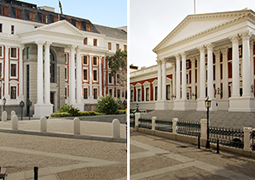
Parliament hosted a summit on the National Gender Machinery on Wednesday, in which legislators, councillors and members of civil society discussed how to improve state engagement and response to all forms of gender inequality in South Africa.
Opening the session, Ms Sylvia Lucas, the Deputy Chairperson of the National Council of Provinces (NCOP) said a dialogue on the status of the national gender machinery was particularly appropriate as the sixth Parliament begins its work, because it creates the suitable platform for Parliament to assert its oversight and accountability role to enable the most appropriate responses to challenges facing society.
“The deliberations must give strategic impetus to discussions and action plans meant to strengthen the national gender machinery. While addressing matters concerning the functionality of the machinery, we must also ensure that the machinery is occupied with the implementation of urgent policy priorities, without which the machinery cannot drive its business effectively,” she told the gathering.
She also indicated that the country was “at a critical crossroad in the life of our developmental state, where decisive and urgent actions must be taken, in order to alleviate the social and economic pressures, which are daily faced by women and girl children in our country”.
Giving background on the national gender machinery, Ms Lucas said when it was first conceptualised, it was envisaged to become the conduit through which gender rights would be activated by the state. In addition, it was thought that it would become important platform for channelling related policy concerns and issues, in order to improve the status of women in South Africa.
The Deputy Speaker of the National Assembly, Mr Lechesa Tsenoli, also participated in the summit and delivered the keynote address on “Poverty, gender-based violence and economic exclusion: an overview of the socio-economic conditions that shape the status of women in South Africa”.
He urged that the agenda of the national gender machinery should be to advance the interests of the most vulnerable in society. “Our gender-sensitive agenda must be matched by a gender-sensitive budget. The Parliamentary Budget Office (PBO) must throw the budget at our faces if it doesn’t have the gender-sensitive component,” said the Deputy Speaker.
He said the gender machinery should continue to represent those who were exploited and excluded and condemned inequalities in some sectors of employment, adding that “underpaying women will lead to the underperformance of the economy”.
Other participants in the summit called for Parliament to have legislation to enforce gender responsive budgeting in all government departments, municipalities and state entities, and proposed that Parliament’s Multi-Party Women’s Caucus must be instrumental in achieving gender-responsive budgeting.
Sakhile Mokoena
5 March 2020

